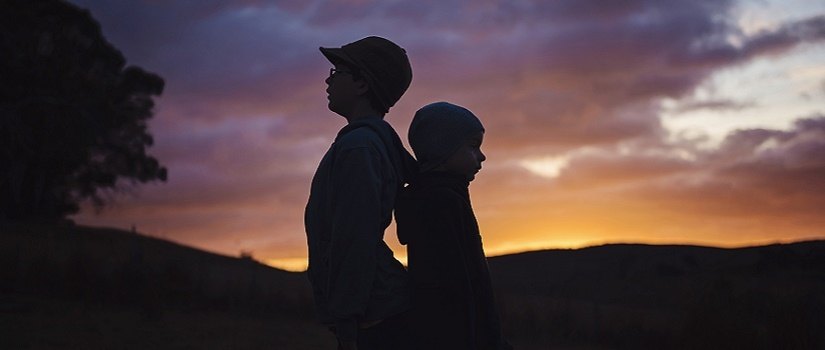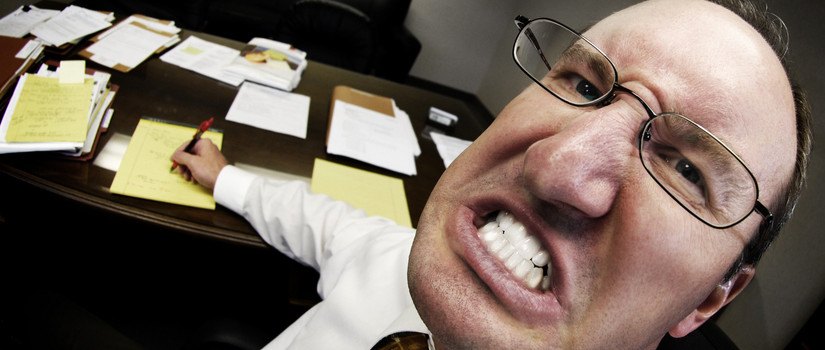THE BIRTH OF CAIN AND ABEL:
The most tragic day in human history could not be relived. The only hope for Adam and Eve and the entire human race to come was the promise of God that one day He would send an offspring, a Savior, Who would destroy the power of the Serpent and in some way restore them to a right relationship with their Creator.
Genesis 4:1. “And Adam knew Eve his wife; and she conceived, and bare Cain, and said, I have gotten a man from the LORD.
Life outside the Garden was much harder than it had been in paradise. After some time of struggle, sweat and frustrating toil with the elements and unyielding ground, Adam and Eve were given their first child, a son they named Cain. Eve looked upon the miraculous little bundle of life in her arms and exclaimed, “With help of the Lord I have brought forth a man.”
Evidently, Eve thought her firstborn was a fulfillment of the Lord’s promise of an offspring who would take away her sin. This expectation was as natural on her part as that of the immediate return of our Lord by some of the early Christians. She was wrong. Cain was not the promised Savior. His life would be an added distress in itself; the seeds were sown for deep-rooted grievances in her life.
The disease of sin entered the human race through Adam and Eve’s disobedience to God’s commandment. It was easily diagnosed in Cain, the first child born to them when he broke out in bitterness and deep-rooted resentment. Some feel that Eve had such high expectations for Cain that it turned into resentment in him when he could not live up to them.
This resentment was to come to a head in his feelings towards God and his brother. Possibly he felt like his mother and father were the cause of his loss of a home in paradise and of his struggle to make a living. Maybe he blamed God for being such a hard taskmaster.
If we are harboring any type of resentment towards our parents, our teachers, our lot in life, our physical deprivations, whether from some misfortune caused by someone else or by our own failures, we must find a way to let it go. If we don’t let it go it will eat us as cancer till it consumes us. The Writer of Hebrews tells us where it will lead. “Looking diligently lest any man fail of the grace of God; lest any root of bitterness springing up trouble you, and thereby many are defiled;” (Hebrews 12:15)
SACRIFICES OF CAIN AND ABEL:
The Bible summed up the occupations of Cain and Abel in the statement that “Abel was a keeper of sheep, but Cain was a tiller of the ground.” Honorable occupations.
Genesis 4:3. “And in process of time, it came to pass, that Cain brought of the fruit of the ground an offering unto the LORD. 4. And Abel, he also brought of the firstlings of his flock and of the fat thereof. And the LORD had respect unto Abel and to his offering: 5. But unto Cain and to his offering he had not respect. And Cain was very wroth, and his countenance fell.”
Cain and Abel are bringing an offering to God to an appointed place to worship. All this would indicate that they are doing it by revelation from God, possibly a precedent was set by God himself in remembrance of the animal which was slain by God Himself to cover Adam and Eve. The main clause in the verses is “And the LORD had respect unto Abel and to his offering: But unto Cain and to his offering he had not respect.” We could ask, “Why did God not accept Cain’s offering?”
Someone may say, “I don’t see anything wrong in the thing Cain did.” “Cain brought of the fruit of the ground.” There is nothing wrong with the fruit. Don’t think that he brought the leftovers—his attitude is not that of giving old clothes to the mission. I think that the fruit he brought would have won the blue ribbon in any county or state fair in the country. He brought the best of his beautiful, delicious fruit, and he brought it as an offering to the Lord. The difference between Cain and Abel’s offering was in the obedience to what God had set as acceptable.
We must remember when we are doing business with God; we must always do it on His terms. Cain was like many people today who think that any form or type of worship is acceptable as long as the person is sincere. God, in some manner, had let them know which sacrifice He had accepted. Possible God himself lit the fire which consumed Abel’s sacrifice as He did on several occasions (Genesis 15:17; Judges 6:21; 1 Kings 18:38).
When Cain saw that his sacrifice was not consumed, or accepted, “his countenance fell.” This was an indication that he realized that God had not accepted his offering. Offering still makes a difference in our worship of God today (Romans 12:1).
THE WORD “SIN” ENTERS THE BIBLE STORY:
Regardless of how energetic and busy we are in Christian service, regardless of how loving and thoughtful we are in personal relationships, regardless of how gifted or respected we are by others, the root of bitterness will so defile our lives that it is wasted in God’s sight with no eternal value and therefore no hope of eternal reward.
Genesis 4:5. “And Cain was very wroth, and his countenance fell. 6. And the LORD said unto Cain, Why art thou wroth? and why is thy countenance fallen? 7. If thou doest well, shalt thou not be accepted? and if thou doest not well, sin lieth at the door.”
When God rejected Cain’s offering, he was “wroth” (angry). The scroll and frown on his face showed his feelings towards God, angry that the labor of his own hands was not enough to please God, angry that God would not lower His standards for him. The root of bitterness had begun to take root. God was looking for the two brothers when they brought their offerings and he was quick to respond to Cain’s anger.
We notice when God reprimanded Cain he held out the offer of another chance with the words, “If thou doest well, shalt thou not be accepted? and if thou doest not well, sin lieth at the door.” This is the first time this awful word, “sin,” enters the Bible, but falls on almost every page afterward.
Sin begins in the heart and mind of man. A few thousand years after the fall of Adam, the writer James looks back on the failures of the human race and sums them up, “But every man is tempted, when he is drawn away of his own lust, and enticed. 15 Then when lust hath conceived, it bringeth forth sin: and sin, when it is finished, bringeth forth death (James 1:14-15).
The fact that Cain knew right from wrong was made clear, as well as the warning that if he refused to do what he knew to be right the sinful attitude would begin to dictate his life. The real problem in his life was not his brother nor the sacrifice but the attitude lurking within him.
Let us face our own attitude. What sin is lurking at the door of your heart? Is it pride, unforgiveness, revenge, anger, jealousy, lust, lies, selfishness, bitterness? You must master it. You must get control of it by confessing it to God, asking Him to cleanse you and release you from its power through the blood of Jesus Christ. If you do not, it will rise up to dominate your life.
THE MURDER OF ABEL:
One day the hatred that had been lurking at the door of Cain’s heart rose up and took control of his life because he did not take heed to the Creator’s warning.
Genesis 4:8. “And Cain talked with Abel his brother: and it came to pass, when they were in the field, that Cain rose up against Abel his brother, and slew him.”
The Bible does not record the last conversation between Cain and Able. Maybe Able, as they walked and talked, was trying to reconcile the bitterness he could feel in Cain toward him. Maybe Cain responded with harsh words, thinking he had the right to be angry and bitter, and lost control of himself and smashed his brother with a rock.
Many people have the same attitude and believe they have the right to feel resentful and bitter because life has been so unfair and unjust. We seem to be afraid that if we forgive and reconcile with those who have wronged, or mistreated us that somehow they will “get away with it.” Cain’s life testifies that seeking revenge by withholding forgiveness won’t work. You have the power to hurt the other person, but in the end, you will destroy yourself.
What a shock it must have been, even to Cain in his anger. To struggle with his own flesh and blood, to smash the life from his younger brother, to see the still and crumpled form on the ground at his feet, lying in a growing pool of blood—surely it must have caused him to want to fall down on his keens and cry out to God, “What Have I Done?” “God Help Me.” “I’m sorry.” “Sin mastered me just as you said it would, but I don’t want to be enslaved by it, Oh God, help me, forgive me, and show me what to do to get right with you.”
But Cain didn’t react with any evidence of regret of repentance at all. He went from bad to worse. He went from bitterness rooted in resentment to the bitterness that grew into rebellion, climaxed with murder.
In our pleasure-seeking, anything goes, feel-good society, guilt is abhorred. We run from it through frantic activity, drown it in alcohol, drug it with mind-altering drugs, escape it through entertainment, blame it on someone else, suppress it, but it keeps coming back. The only thing that can “wash away” our sin and guilt before God is the Precious Blood of Jesus Christ. We must go to Jesus for cleansing. What a difference there would have been in Cain’s life if only he had sought a place of forgiveness.
THE CURSE OF CAIN:
The Bible is so true when it says, “Your sin will find you out.” (Numbers 32:23)
Genesis 4:9. “And the LORD said unto Cain, Where is Abel thy brother? And he said, I know not: Am I my brother’s keeper? 10. And he said, What hast thou has done? the voice of thy brother’s blood crieth unto me from the ground. 11. And now art thou cursed from the earth, which hath opened her mouth to receive thy brother’s blood from thy hand; 12. When thou tillest the ground, it shall not henceforth yield unto thee her strength; a fugitive and a vagabond shalt thou be in the earth.
16. And Cain went out from the presence of the LORD..” (What a tragic statement)
We do not know how long it was before God came to Cain and confronted him with his awful deed. Was it minutes, hours, or days, or weeks of misery such as King David described when he cried out, “When I kept silent, my bones wasted away through groaning all day long. For day and night, your hand was heavy upon me; my strength was sapped as in the heat of summer.” It was a year before God sent Nathan to him and confronted his sin with Bathsheba. David knew the agony of rebellion against God.
Whenever it was, sometime after the murder, God approached Cain and asked him, “Where is thy brother?” God knew where Able was. He wanted Cain to tell Him where he was. He wanted Cain to confess his sin, but like King David, in his rebellious condition, Cain resisted.
If you and I resist confessing our sin when God brings it up to us through our own Bible reading, our spouse, a friend, or a Pastor, or just our conscience, we harden our heart. And a hardened heart is an impenetrable barrier in our relationship with God, our enjoyment of His blessings, our emotional and spiritual security and our eternal reward. A hardened heart is the seat of a miserable life.
Cain was accountable to his Creator for his actions whether or not he acknowledged it or not. The Judge (God) rendered the verdict: “And now art thou cursed from the earth…” Cain lost his peace. He lost real meaning to his life. He lost inner security and contentment, his satisfaction and sense of fulfillment. The ground would no longer produce for him, forcing him to wander from place to place seeking peace. As he wandered, frightened, his conscience would constantly remind him of his guilt.
CAIN’S DEGENERATE GENERATION:
Cain’s sin, left to take its own natural course, intensified with each generation until the entire civilization of the world in his day was ravaged by it.
Genesis 4:16. “And Cain went out from the presence of the LORD, and dwelt in the land of Nod, on the east of Eden. 17. And Cain knew his wife, and she conceived, and bare Enoch: and he built a city, and called the name of the city, after the name of his son, Enoch.”
Life without God can be attractive. It can involve lots of money, successful business ventures, exciting travel, and pleasurable entertainment. Cain’s world evidently had all these things. Superficially, he led an interesting life. He married and had children whose descendants were progressive and aggressive. They built cities, raised cattle, produced music, and generally did some amazing things (Genesis 4:16-24). Sounds like our own generation. Does life apart from God look attractive to you? Could it be that the attractiveness of such a lifestyle is blinding you to its reality?
As we look closer at Cain’s generation, we see in his activities the restlessness that characterizes someone on the run from God. “He builded a city.” Cain’s civilization was a time of booming construction. Everywhere you go in the world today someone is building something. Someone who recently visited China told me that everywhere he looked, in every direction he could see building cranes some reaching of a mile in the sky. Someone told him that ½ of all building cranes in the world were in use in China.
A few years ago Las Vegas, Nevada went through an unprecedented building boom. Cities are growing in every direction. Our own city has been rated as one of the fifteen “boom towns” in the United States. Roads, airports, streets, shopping malls, schools, office complexes, auditorium expansion, civic centers, sports arenas, are all being built. The majority of people in the world are living lives that are not right with God, and they get busier and busier, running faster and faster without realizing the real need in this world is not more buildings but reconciliation with God.
Cain’s civilization was marked not only by construction but by the corruption of all moral values that would provoke the judgment of God. “And GOD saw that the wickedness of man was great in the earth and that every imagination of the thoughts of his heart was only evil continually” (Genesis 6:5).
A NEW GENERATION THAT WOULD PROMOTE GOD’S PRINCIPALS:
God has never left himself without witnesses even in the most darkened age.
Genesis 4:25. “And Adam knew his wife again; and she bare a son, and called his name Seth: For God, said she, hath appointed me another seed instead of Abel, whom Cain slew. 26. And to Seth, to him also there was born a son; and he called his name Enos: then began men to call upon the name of the LORD.”
When it seemed that the light of God’s glory would go out during Cain’s civilization, God gave Adam and Eve another son through which the light would be passed from generation to generation unto the end of time. Cain’s civilization provoked the judgment of God and was washed away in the flood. All the culture all the plans and progress, all the construction, had no eternal value in God’s sight.
Jesus warned us that it would be like that at His Second Coming. “For as in the days that were before the flood they were eating and drinking, marrying and giving in marriage, until the day that Noe entered into the ark, And knew not until the flood came, and took them all away; so shall also the coming of the Son of man be” (Matthew 24:38-39).
Cain’s civilization was washed away without a stone of it left. The only trace of it is found in the Bible. God did not even record the years of their lives (Genesis 4:16-24). On the other hand, the genealogy of Genesis 5 reminds me of a relay race in which the baton is passed from runner to runner. In the race of life, the baton is the truth that leads to peace and eternal life. Each generation receives the baton from the previous generation, runs the race to best of its ability, then passes the baton smoothly and securely to the next generation.
In contrast to the society surrounding them, the ten men listed in Genesis 5 stood out like giants in the land. In the midst of ungodliness, they were godly. In the midst of wickedness, they were good. In the midst of rebellion, they were righteousness, In the midst of bitterness, they were blessed. In the midst of those running from God, they walked with God. In the midst of a wasted world, they lived lives that were worthy of eternal honor.
From those who had preceded them, they received the “baton” of truth which leads to faith in God. They ran their race with diligence and perseverance, and then they relayed the truth on to the next generation.
James & Mary Lee Thornton









